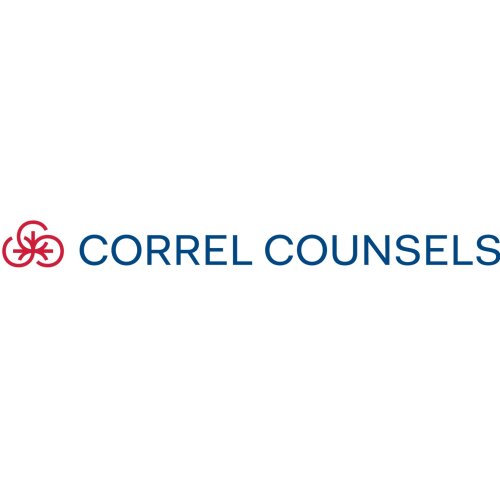Best Renewable & Alternative Energy Lawyers in Maldives
Share your needs with us, get contacted by law firms.
Free. Takes 2 min.
Or refine your search by selecting a city:
List of the best lawyers in Maldives
About Renewable & Alternative Energy Law in Maldives
The Maldives, an island nation highly vulnerable to climate change, has made significant steps toward promoting renewable and alternative energy sources. Recognizing the threats posed by rising sea levels and fossil fuel dependence, the Maldives government has implemented policies and frameworks to increase the use of solar, wind, and other clean energy technologies. The Maldives' renewable energy strategy aims to reduce greenhouse gas emissions, support sustainable development, and provide reliable electricity to its widespread islands. Laws and regulations in this sector affect both individual consumers and large-scale project developers, focusing on permitting, licensing, land use, environmental protection, and tariff-setting.
Why You May Need a Lawyer
Legal assistance in renewable and alternative energy becomes essential for various reasons in the Maldives:
- If you are investing in or developing a renewable energy project, such as a solar or wind farm, legal guidance can help you navigate complex approval, licensing, and environmental regulations.
- Homeowners and businesses seeking to install rooftop solar panels or other renewable systems may require advice on compliance, incentives, and grid connection agreements.
- Disputes can arise between developers, landowners, government authorities, or utilities over contracts, land rights, or tariff rates.
- Assistance may be needed to understand incentives, subsidies, and government initiatives promoting clean energy.
- Non-compliance with environmental or planning regulations can lead to penalties - legal advice can help avoid such issues.
- Foreign investors in energy projects need clarity on local laws, joint ventures, and fiscal incentives.
Local Laws Overview
Renewable and alternative energy in the Maldives is governed by a blend of energy-sector regulations, environmental protection laws, and investment frameworks. Key aspects include:
- The Maldives has a National Energy Policy and Strategy led by the Ministry of Environment, Climate Change and Technology, promoting increased renewable energy adoption.
- Private sector participation is encouraged through public-private partnerships and independent power producer (IPP) models, supported by clear licensing and procurement rules.
- Land use for energy projects is regulated, with specific permits needed for construction, environmental impact, and connection to national utilities such as Fenaka Corporation and State Electric Company (STELCO).
- Environmental Impact Assessment (EIA) requirements are mandatory for large-scale projects as stipulated in the Environmental Protection and Preservation Act.
- Feed-in tariffs and net metering policies exist to enable solar energy integration at household and business levels, regulated by the Maldives Energy Authority.
- Importation of renewable energy equipment may be subject to customs concessions under certain programs to promote sector growth.
- Foreign ownership rules, local partnerships, and repatriation of profits are covered under the Foreign Investment Act, relevant to overseas stakeholders.
Frequently Asked Questions
What are the main types of renewable energy used in the Maldives?
The Maldives utilizes mainly solar and, to a lesser extent, wind energy due to its geographic and climatic conditions. Biomass and ocean-based solutions are still in development phases.
Is it legal for homeowners and businesses to install solar panels?
Yes, individuals and businesses can legally install solar panels, provided they follow installation guidelines, seek necessary permits, and comply with grid connection protocols.
Are there government incentives for renewable energy projects?
Yes, various incentive schemes exist, including grants, soft loans, and tariff mechanisms for both new and existing renewable energy projects, as outlined by the Ministry of Environment and the Maldives Energy Authority.
What permits are needed for a renewable energy project?
Typical permits include land use authorization, environmental clearances, construction permits, and approvals from the Maldives Energy Authority for grid interconnection.
How are electricity tariffs for renewable energy determined?
Tariffs are generally set or approved by the Maldives Energy Authority, based on project economics, policy goals, and negotiations with the national utilities.
Can foreign investors participate in renewable energy projects?
Yes, foreign investors are welcome subject to registration and compliance with the Foreign Investment Act and sector-specific requirements, often in partnership with local entities.
What happens if a project does not meet environmental compliance?
Non-compliance can result in fines, suspension or revocation of permits, and additional restoration requirements as enforced by the Environmental Protection Agency.
Is net metering allowed for households and small businesses?
Yes, net metering is available, allowing consumers to export surplus solar energy back to the grid, offsetting their electricity bills, subject to technical standards and regulatory approval.
What should be included in a contract with an energy company or supplier?
Key contract elements include project scope, installation timelines, performance guarantees, maintenance terms, tariff arrangements, and dispute resolution mechanisms. Legal advice is recommended when drafting or reviewing such contracts.
How can I resolve a dispute with a renewable energy service provider?
Disputes may be resolved through negotiation, mediation, or formal legal proceedings, depending on the contract terms and the nature of the disagreement.
Additional Resources
If you require more information or assistance, the following resources are valuable in the Maldives:
- Ministry of Environment, Climate Change and Technology - responsible for national energy policy and regulatory matters.
- Maldives Energy Authority - oversees licensing, regulatory compliance, and tariff approvals in the energy sector.
- Environmental Protection Agency - enforces environmental regulations and impact assessments.
- Fenaka Corporation and State Electric Company (STELCO) - main utility providers for power generation and distribution.
- Maldives Renewable Energy Association - offers resources, advocacy, and industry networking support.
- Local legal firms with energy sector expertise - for tailored legal consultation.
Next Steps
If you need legal assistance related to renewable and alternative energy in the Maldives, start by outlining your specific needs, such as project development, regulatory compliance, or dispute resolution. Gather relevant documents, contracts, and correspondence. Consult with a local lawyer experienced in energy and environmental law, who can help you navigate licensing procedures, draft or review agreements, and represent your interests before government agencies or in legal proceedings. Staying informed and proactive ensures your legal rights and interests are protected while supporting the growth of sustainable energy in the Maldives.
Lawzana helps you find the best lawyers and law firms in Maldives through a curated and pre-screened list of qualified legal professionals. Our platform offers rankings and detailed profiles of attorneys and law firms, allowing you to compare based on practice areas, including Renewable & Alternative Energy, experience, and client feedback.
Each profile includes a description of the firm's areas of practice, client reviews, team members and partners, year of establishment, spoken languages, office locations, contact information, social media presence, and any published articles or resources. Most firms on our platform speak English and are experienced in both local and international legal matters.
Get a quote from top-rated law firms in Maldives — quickly, securely, and without unnecessary hassle.
Disclaimer:
The information provided on this page is for general informational purposes only and does not constitute legal advice. While we strive to ensure the accuracy and relevance of the content, legal information may change over time, and interpretations of the law can vary. You should always consult with a qualified legal professional for advice specific to your situation.
We disclaim all liability for actions taken or not taken based on the content of this page. If you believe any information is incorrect or outdated, please contact us, and we will review and update it where appropriate.
Browse renewable & alternative energy law firms by city in Maldives
Refine your search by selecting a city.
















